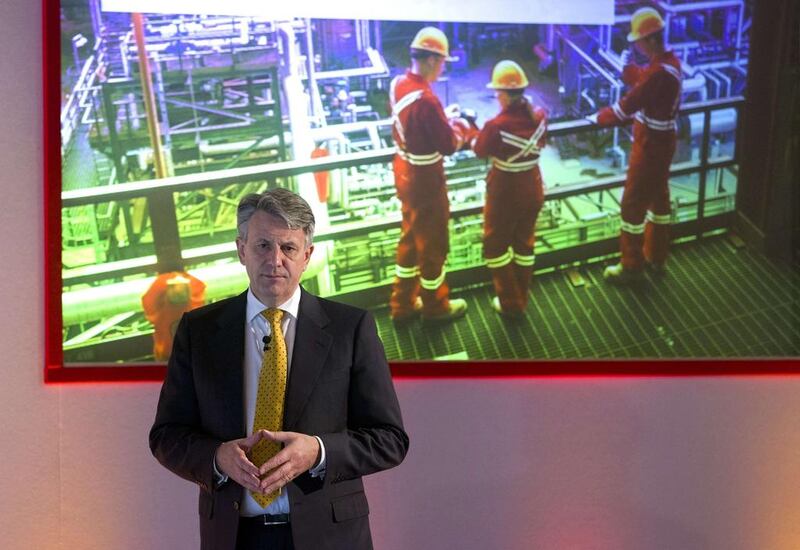Royal Dutch Shell announced thousands of further job cuts, but the Middle East will not be affected much because regional investment in the energy sector remains relatively robust.
Ben van Beurden, Shell’s chief executive, says the company is expecting to cut 6,500 jobs.
The job losses will be evenly shared between those leaving Shell because their business divisions have been sold or spun off, contract employees whose projects have ended or been axed, and Shell workers who have been retrenched.
The announcement came as Mr van Beurden reported Shell’s second-quarter financial results, which suffered an expected sharp fall in earnings.
Refining and marketing profits more than doubled, but were insufficient to offset a 78 per cent plunge in the larger exploration and development segment. That resulted in overall profit (after adjusting for inventory prices and one-off items) falling to US$3.8 billion this year from $6.1bn in the same period last year.
Shell shares rose about 5 per cent to £18.63, buoyed by the cost-cutting measures and because the earnings decline was not as bad as analysts had expected.
The job cuts will have a relatively small impact on Middle East operations, according to Shell’s Dubi-based spokesman for the region.
“Most of the cuts are not here but in the North Sea and North America,” he said.
Direct job losses at Shell Middle East would be “in the tens rather than hundreds”, and there would not be any discernible impact in the UAE, he said.
The main regional decline in headcount would come from divestments in North Africa, where Shell is seeking to exit some projects in Egypt and Algeria.
In April, when Shell announced its proposed $70bn takeover of BG Group, the oil major said it would be consolidating its global operations, targeting asset sales of about $30bn between next year and 2018.
Mr van Beurden said he was planning to cut capital expenditure this year to $30bn, a $7bn cut that is $3bn more than what Shell forecast earlier this year.
Shell’s moves have been in keeping with those of the other oil majors, most of which reported financial results this week.
In all, about $200bn of energy projects have been eliminated or delayed since the collapse of oil prices last year. Estimates of global oil-and-gas job cuts range between 70,000 and 100,000.
But Middle East governments – particularly the UAE’s – have kept project spending high despite the oil price slump.
A report this week by Procorre, a UK-based employment consultant, estimated that half of the more than 2,000 oil-and-gas jobs on offer in the Middle East are based in the UAE, even though the country accounts for just 9 per cent of regional oil and gas output.
“Consistent investment by Emiratis means that the demand for skilled oil and gas professionals remains strong,” said James Alexander, a project team director at Procorre.
The UAE is forging ahead with projects to develop its major onshore and offshore oilfields, aiming to boost oil output from 3 million barrels a day to 3.5 million bpd by 2017.
“Certain parts of the market are getting squeezed, such as exploration,” said Gary Ward, an operations director at Hays Oil & Gas in the UAE.
“Rig count is down in the Middle East, although not as much as the US. But investment is still going into development of existing projects and greater refining capacity.”
The UAE last week announced it would cut subsidies for domestic fuel consumption, a move other countries are expected to emulate to cut government spending at a time of lower oil prices.
That will likely spur more investment in domestic oil refining and storage infrastructure as countries reduce their reliance on oil and gas imports.
“Everyone in the Middle East, almost everyone, is spending money on infrastructure so they can rely less on others for refined products and spend less on subsidising,” said Mr Ward, noting recent news that Kuwait would develop a $11.5bn refining complex.
amcauley@thenational.ae
Follow The National's Business section on Twitter





